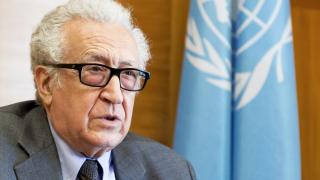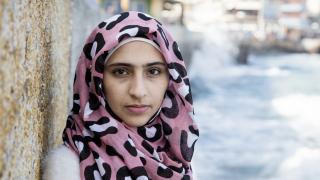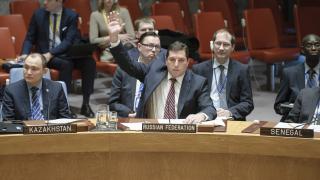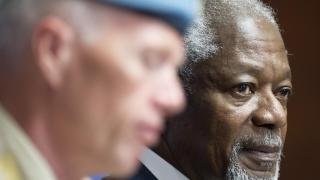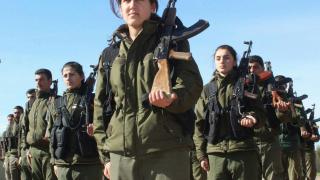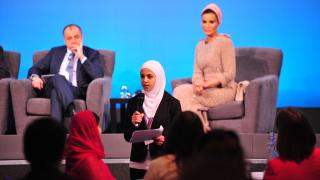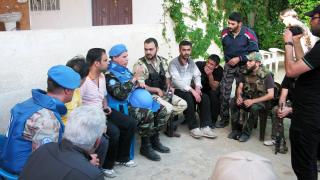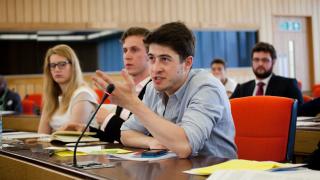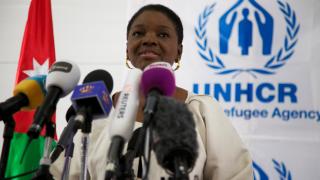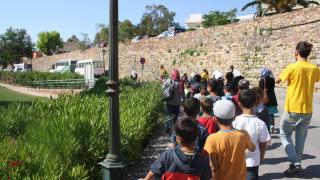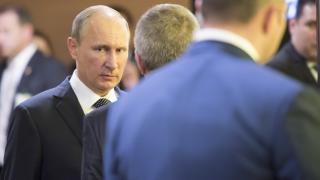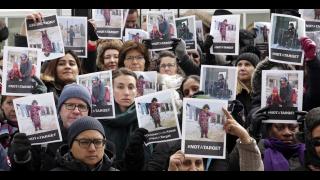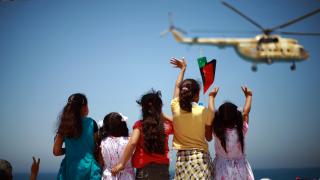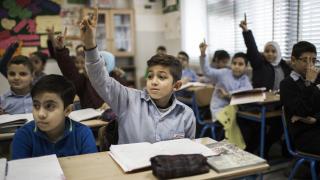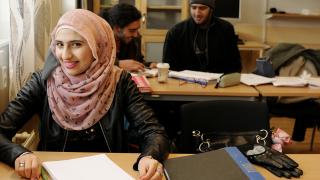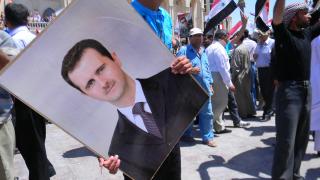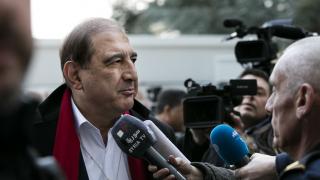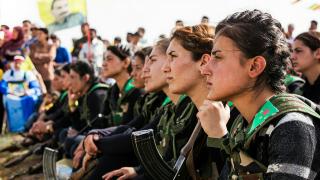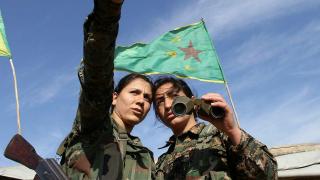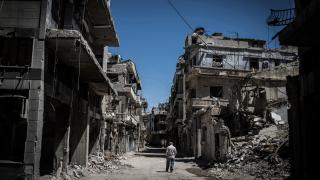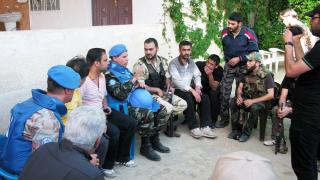
The UN has been much criticised for its role in Syria, from Security Council inaction to ‘taking sides’ in the conflict. However, many of the issues the UN faces in Syria are incredibly difficult, and the correct course of action is not always clear. We outline some of the dilemmas the UN has faced and ask: what would you have done?
Delivering aid or compromising neutrality?
The UN is attempting to curb the suffering of civilians in Syria by delivering humanitarian aid. The Syrian Government does not allow access to the territory it controls to those not willing to play by its rules. If the UN does not comply, it will not be able to deliver help to those who need it the most.
However, a Guardian investigation in August 2016 revealed that millions of dollars in aid has gone directly to the Syrian regime – critiqued by the UN itself as having committed “mass atrocities” in Syria – as part of projects to support farming and prevent famine. Millions more have gone to charities which are run by, or associated with, members of President Assad’s family or business colleagues. The World Health Organization has spent more than US$5m to support Syria’s national blood bank which, in times of war, is sorely needed. But in Syria, the blood bank is under the control of the army, and there are fears that soldiers will receive blood transfusions ahead of civilians.
Is the UN compromising its neutrality by operating in this way? Or is this simply the only way to help the maximum possible number of civilians?
Bearing witness or becoming complicit?
Sometimes UN staff will find themselves in a position where there is nothing they can do to help. What should they do in such a situation? Should they withdraw? Or should they stay anyway to bear witness to atrocities that take place, and in the hope that their presence will act as a deterrent to such atrocities? But could the presence of the UN make them complicit in the crimes that then take place?
Gaining access or losing legitimacy?
Much of Syria’s territory is in the hands of groups that abuse human rights and commit atrocity crimes. If the UN speaks out against these actions, it could find itself locked out of these areas and unable to help civilians in need. It could also place UN staff, particularly local staff, at risk. In the past, particularly in countries such as Sri Lanka, the UN has held back some of its criticism for this reason. The 2012 internal review of UN action in Sri Lanka, commissioned by then-UN Secretary-General Ban Ki-moon, was critical of this approach. In response, Mr Ban launched the Human Rights up Front initiative, to ensure that raising human rights concerns is given equal priority to service delivery.
But just how outspoken should the UN be? How should the UN balance strong criticism with service delivery? Should the UN call for war crimes prosecutions now, or should it wait until after the conflict has ended?
Who would you bring to the negotiating table?
Peace talks are negotiations between groups which are at war. To be meaningful, they need to include all parties to a conflict. But by inviting a party to these negotiations you grant them a degree of recognition and legitimacy, which could potentially further entrench their control of a conflict zone.
Would you be willing to negotiate with Assad? What about ISIL? If not, does that mean a peaceful end to the conflict is impossible?
Adapting to new challenges?
The UN is an organisation that deals with states; it is not supposed to recognise or negotiate with non-state actors. During a revolution the legitimacy of the state is subject to challenge, and multiple groups claim to represent the state. Which of these groups should the UN recognise as legitimate, and how and when should they make a change in the group they consider to represent the state? Additionally, when you have a complex civil war situation such as Syria, a type of conflict which is now more common than not, is it reasonable or effective to treat state and non-state actors differently? What criteria should the UN use to determine who is worthy of recognition?
What should you do when there's nothing you can do?
At various points in this conflict, UN-backed processes – such as the May 2014 peace talks – have broken down. The major powers on the Security Council have walked away from the table or joined in the conflict. How should UN officials respond to this? Should they resign? Should they be clear about who is to blame for the breakdown of the process? Would apportioning blame make restarting the process harder?

